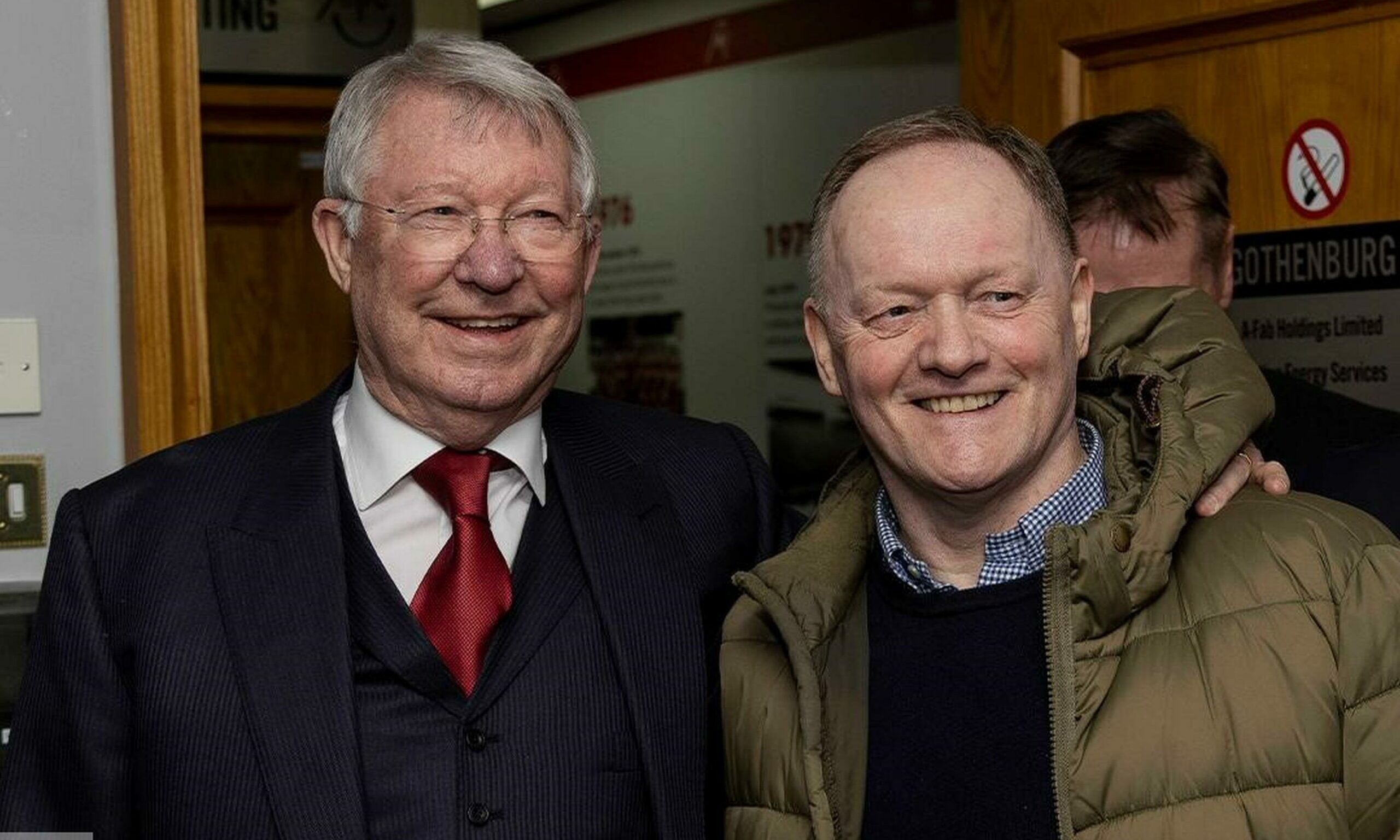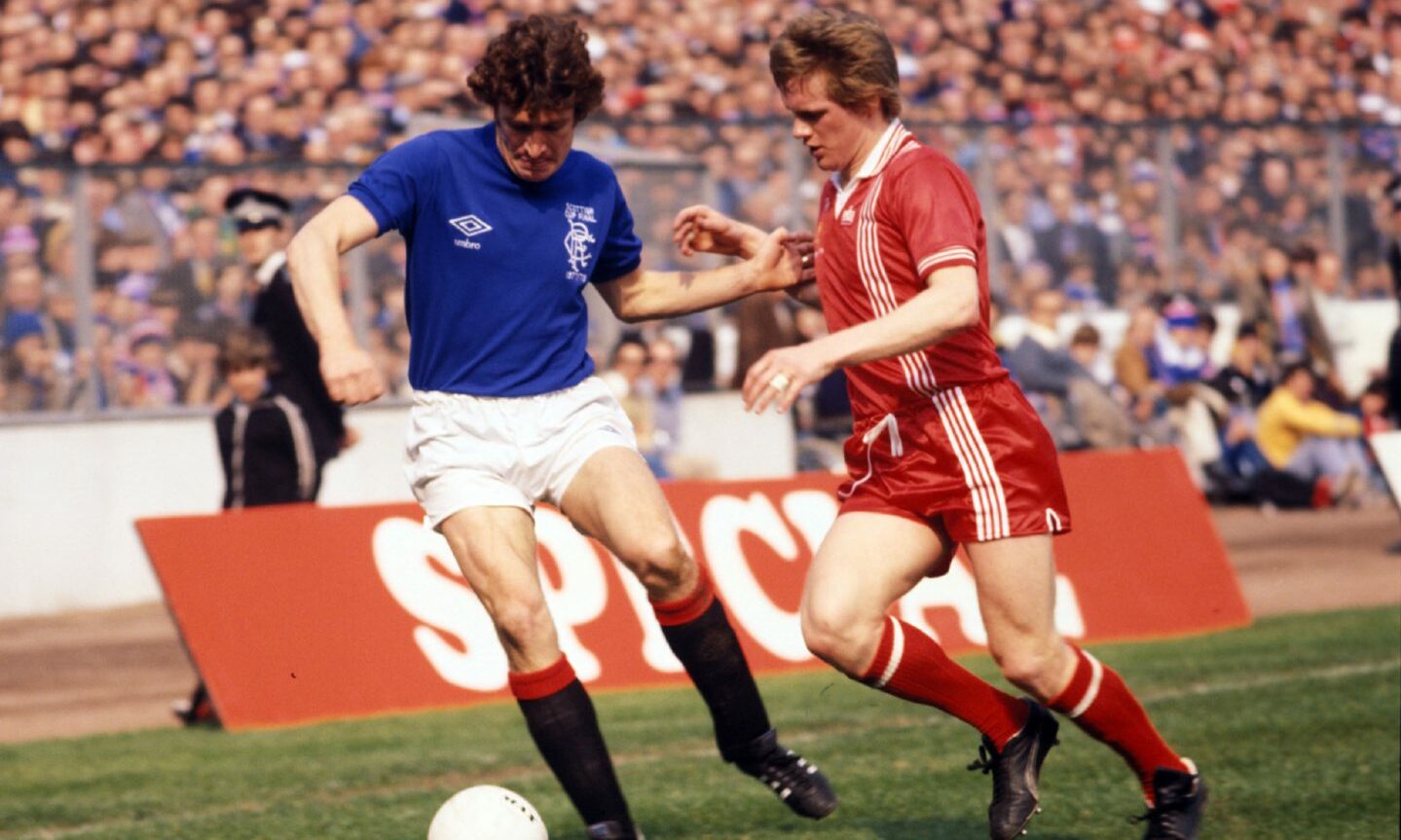
John McMaster is one of the men whose name is etched forever in football history as a Gothenburg Great; the lad from a working-class background in Greenock who joined the Dons as a teenager and burst into the big time.
He was nicknamed Spammer, because his family grew up in a community where – or so it was claimed – the people were so poor they had to survive on tins of the processed meat, yet there was never any sense John was missing out on a household filled with laughter and love.
He and his brother, Andrew rolled up socks into the shape of a football and, as he puts it, “kicked lumps out of one another”, playing indoors at their home in Poplar Street, where they lived with six sisters and their mother.
Yet, while he became a Pittodrie legend, benefiting from the support of Alex Ferguson, Archie Knox and the club’s ubiquitous kitman/scout/general factotum Teddy Scott, there was no shortage of tragedy and adversity in the early years of his life.
Indeed, as he has revealed in a new book McMaster and Commander, his career could easily have veered off in other directions and he wouldn’t have won such a plethora of silverware, including a brace of European trophies, during his stint in the Granite City.
Awful news for the family
As John recalled: “My dad, Miffy, as he was known, was one of the many
thousands of local people who worked in the shipyards. He was a riveter, a dangerous job that involved working with red hot steel.
“His own father had tragically been killed while working on the railways when he was crushed by two compartments of a goods train.
“Not long after we moved house, my dad fell into the river while he was fishing with his friends at Pottery Shore next to the gas works. He disappeared below the water.
“Ten days went by [in 1960] before his body was discovered. Our family had been robbed of its head. He was only 43 and he left behind my mum and eight children aged between five and 17. I was just five years old at the time.
“It has been devastating to have spent such little time with him; I have lived almost my entire life without my dad. I regularly find myself going past Pottery Shore and still wonder why it happened.”
Sport was a passion for youngster
If that was a grievous event, John was grateful for the succour and support he received from his uncle, Andrew McKillop, who looked after him as he would have done his own son.
A closeknit family stayed strong and sport was a passion for the youngster, who never bothered about lack of facilities or community centres. The mantra in these days was: find a ball (or a bundle of old socks) and we’re going to have fun.
But, soon enough, as word spread about his potential, he was offered opportunities to pursue the game at a professional level.
Jimmy Bonthrone signed him at 17 in 1972, oblivious to John’s admission he could barely locate Aberdeen on a map.
And that was when the original seeds were sown for a halcyon period where the Dons reached unprecedented heights and hoovered up plaudits, league titles and cups in Scotland and further afield, leading to their fabled victory over Real Madrid on May 11 1983.
However, it wasn’t plain sailing for McMaster. Quite the contrary, as he received a horrible injury during a coruscating tussle with Liverpool in 1980.
But – and he will never forget it – this was where Ferguson demonstrated there is lot more to his psychological make-up than sweary outbursts and epic dressing-room tantrums.
‘He recognised I needed hope’
John said: “He was waiting at the hospital to see how I was when I came around from the operation and, being genuinely concerned for his employee, went to see the surgeon to get an update.
“The prognosis wasn’t good; the surgeon told Sir Alex that my knee was so badly damaged it was unlikely I would ever play football again.
“It was at that point, and I didn’t know this until talking to the Boss many years later, that the ability of the man to understand individual people came to the fore.
“His instant reaction to the surgeon was to instruct him not to tell me that my career was in doubt.
“He realised that receiving such devastating news would cause me great problems. I was a worrier, had a mortgage, a wife and two young kids, and he recognised I needed hope and encouragement and a feeling of safety and security.
He couldn’t have done more to help
“When I awoke, the first person I saw was the Boss, which in itself was a fantastic boost. The sense that someone in his position was taking the time to show how much he cared
about me gave me great heart and also helped to cement a huge feeling of loyalty.
“He kicked into action straight away. ‘Listen, son, don’t you worry about anything. I’ve already spoken to Katy (John’s wife) and let her know everything is being looked after, so she knows she doesn’t need to worry about the family and the mortgage and so on.”
“Footballers in those days weren’t the multi-millionaires that they are now. Our basic wage was okay in the grand scheme, but the bonus payments we received for playing in and winning games made a huge difference.
“Fergie recognised this and he told me that he was keeping me on the full bonus for three months, reducing to 50% for the following three months and then 25% for the next three. He said: ‘That will help you, and by that time, you’ll be back in the first team, so you just concentrate on recovering and getting yourself fit.’
“Looking back, I still think it was an incredible gesture. And it made such a difference. But that was the thing about the Boss. He got to know us all and what made us tick. He knew what we could and couldn’t do. And we thought the world of him for it.”
Players to get Freedom of Aberdeen
John’s book isn’t your standard sporting account of being over the moon. There are no sick parrots in these pages.
Instead, he and his colleagues, David Christie, Neil Martin and Robin McAuslan, have woven together a compelling account of everything from family ties to the game’s dramatic transformation and its myriad links with business.
Even now, 40 years after their European triumph at the Ullevi stadium in Gothenburg, the surviving Greats – poignantly, the youngest member of the side, Neale Cooper, died in 2018 – still keep in touch on WhatsApp and are there for one another if required.
And they will meet up once more in May when they are granted the Freedom of Aberdeen by the city council, even if John isn’t alone in wondering why the authority has taken so long in getting round to arranging this honour.
He said: “I would have imagined they could have sorted this out 20 or 30 years ago. I mean, we are the only Scottish club ever to win two European trophies [they also collected the Super Cup in 1983] and I don’t see that record being broken.
“But better late than never, I suppose. It’s a shame that Neale has passed, but his family will be with us in May and the simple truth is that Neale is still with us in spirit.”
Suite news for the McMasters
It’s a vastly different world from the one where the young couple, John and Katy, moved into a flat in Summerfield in Aberdeen in the mid-1970s, but couldn’t afford to purchase a three-piece suite, because they didn’t have enough credit history to buy it.
At which point, Teddy Scott stepped in, became their guarantor and ensured they had something comfortable to sit on.
No wonder that McMaster and his mates have so many magic memories.
McMaster and Commander is available from www.morganlawrence.co.uk
Five questions for John McMaster
1)What book are you reading?
“I’m a doer, not a reader.”
2)Who’s your hero/heroine?
“My uncle Andrew who looked after me when my dad died so early”.
3)Do you speak any foreign languages?
“Just Greenockian!”
4)What’s your favourite band or music?
“I’m a big David Bowie fan.”
5)What’s your most treasured possession?
“My European Cup Winners Cup medal.”




Conversation